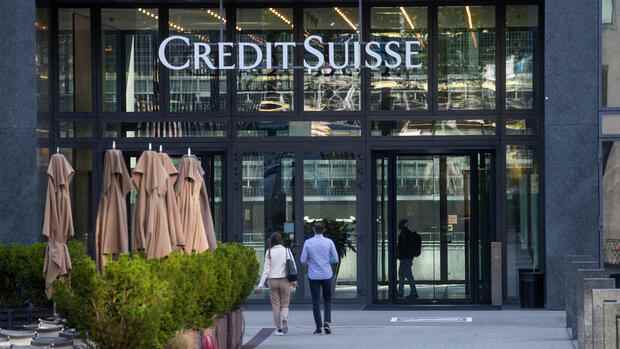Zurich Credit Suisse is becoming the problem child of the financial markets: On Monday, so-called credit default swaps (CDS), which investors use to insure themselves against the default of Credit Suisse bonds, rose to an all-time high. According to the financial data service Bloomberg, the risk premium for the CDS climbed to 3.7 percentage points. In return, the share price of the major Swiss bank fell by almost twelve percent at times to an all-time low of around CHF 3.50.
This means that investors who want to protect themselves against credit defaults with Credit Suisse for five years now have to pay 3.7 percent of the sum to be insured as a premium. Admittedly, this level is still far from that of companies at risk of default and is part of a sell-off in the entire market. However, the recent rise in CDS costs has evidently already prompted customers to ask questions, renegotiate terms or switch to other banks, they say.
A mix of failed CEO communications, investor uncertainty about the bank’s future strategy, and speculation on social media about an impending bank collapse that was brewing over the weekend have accelerated the bank’s downward trend. The bank declined to comment on the market turmoil on Monday.
CEO Ulrich Körner contacted the workforce at the end of last week. In a memo, he said, among other things, that Credit Suisse is in a “critical moment” but has a solid capital base, which the share price currently does not reflect.
Top jobs of the day
Find the best jobs now and
be notified by email.
His statements, sometimes taken out of context, developed a momentum of their own on social networks such as Reddit: linked to unconfirmed reports by an Australian financial journalist that an unnamed investment bank was on the verge of collapse, a debate unfolded as to whether a second Lehman Brothers case was imminent.
The bankruptcy of the investment bank triggered the financial crisis in 2008. The supposed similarity: A few days earlier, the then head of Lehman Brothers, Richard Fuld, had emphasized the solid capital base of the bank. Twitter users also referred to the announcement by the US Federal Reserve over the weekend that it would hold a partially closed meeting.
Top management relies on one-on-one meetings with investors
Credit Suisse’s top management bucked the negative market sentiment in one-on-one meetings with key investors over the weekend. According to an internal guide for client discussions, which is available to the Handelsblatt, the managers should make the following clear to shareholders and clients: “Credit Suisse has a strong capital and liquidity position and a solid balance sheet. The development of the share price does not change this fact.”
In the talks, management refers to the equity ratio of 13.5 percent overall. In the second quarter of 2022, this was within the target corridor that management had set. It is above the level of most of its competitors. In addition, the so-called “Total Loss Absorbing Capacity” is around 97 billion Swiss francs. This regulatory indicator is intended to measure the bank’s ability to absorb losses.
>> Read also: Credit Suisse loses top managers Welter and McCarthy
However, it is still unclear how expensive the renewed restructuring of the bank will be – and whether this will burden the equity ratio. The bank had rejected reports that Credit Suisse was considering a capital increase.
Since the beginning of the year alone, Credit Suisse shares have fallen by 60 percent. At the end of June, the bank replaced its CEO in an attempt to end the series of negative headlines. Since then, the new boss Körner has been working on a new strategy, which should be completed by the end of October. It is considered certain that Körner wants to cut back on investment banking.
A fund manager confirms that he has always considered Credit Suisse’s capitalization to be “proper”. He also points to the fact that the major Swiss bank recently issued a subordinated bond and thus raised 1.6 billion dollars, which are offset against equity.
>> Read also: Dax loses almost one percent – Credit Suisse unsettles the markets
The bank had to pay 9.75 percent interest for it. When a comparable interest-bearing paper was issued two years ago, the interest coupon was only half as high at 4.5 percent. This is a sign that although the bank has to offer higher returns for the increased risks, it still has good access to the capital market.
It is unclear whether this reassures users on social media. But at least with the most important investors, the management team of CEO Körner should still get through with these arguments.
More: Credit Suisse is reportedly considering splitting up the investment bank
